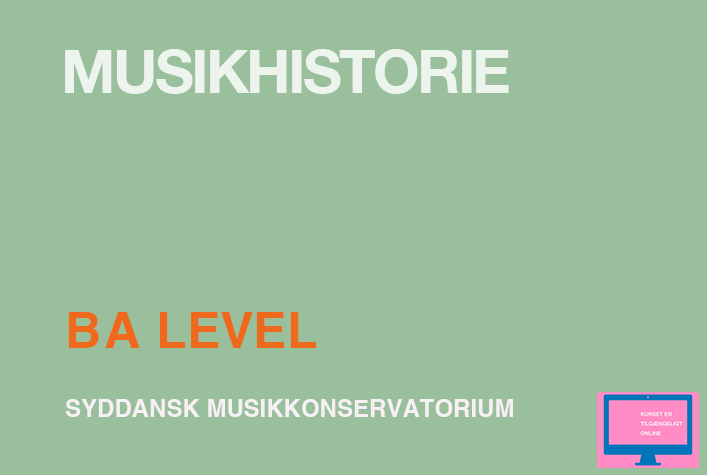
Music History
Teacher: Morten Øberg
From a cultural-historical, societal and sociological perspective, significant periods and style phenomena in the history of rhythmic music are reviewed. Examples of other musical cultures and styles – as well as other cultural expressions – are included in order to elucidate various musical development trends.
PREREQUISITES
General interest in the subject.
LEARNING OUTCOMES
At the end of the module, the student shall:
- possess basic knowledge of significant styles and periods in the history of rhythmic music
- be able to understand and reflect on general music historical terms and concepts used at home and abroad
- be able to apply a variety of critical and analytical approaches to music and musical practice
- be able to seek out and gather relevant knowledge in the field
- be able to communicate a musical history subject, in writing and orally, to colleagues and non-specialists
- be able to enter into musical interaction and interdisciplinary collaboration – based on music historical knowledge
CONTENTS
Work will be performed in the following areas:
From a cultural-historical, societal and sociological perspective, significant periods and style phenomena are dealt with in the history of rhythmic music.
Examples of other musical cultures and styles – as well as other cultural expressions – are included in order to elucidate various musical development trends.
The emphasis is on:
- music analysis from a historical angle
- style knowledge
- an overview of the ‘roots’ of contemporary styles, differences and interrelationships
- various musical parameters
TEACHING AND WORKING METHODS
Class instruction.
Lectures and discussions – including musical examples (records, CDs, video), written and oral sources and, to a limited degree, notes. In addition to longer chronologically cohesive courses, subjects of a more thematic nature will be reviewed.
Attentive: The module can be taken via distance learning using Zoom.
GROUP FORMATION
Normal team size: 15 students. Space for 5 distance students.
ASSESSMENT
Certificate subject – passed/not passed at attendance.
REFERENCES
TIME
2 semestres. 24 times 1,5 hours
PLACE
Syddansk Musikkonservatorium, Odense.
ONLINE
JA
LEVEL
BA-level
ECTS
8 ECTS
LANGUAGE
Danish – English if required by participants
REGISTRATION
If you wish to participate in one of the TVAERS courses, you need to register 1 or 2-course requests.
Before the course start, you will be notified if you can be offered a place on a module.
Registration opens on June 3rd.
The deadline for registration for the fall semester of 2022 is 17 June
You register by this link

